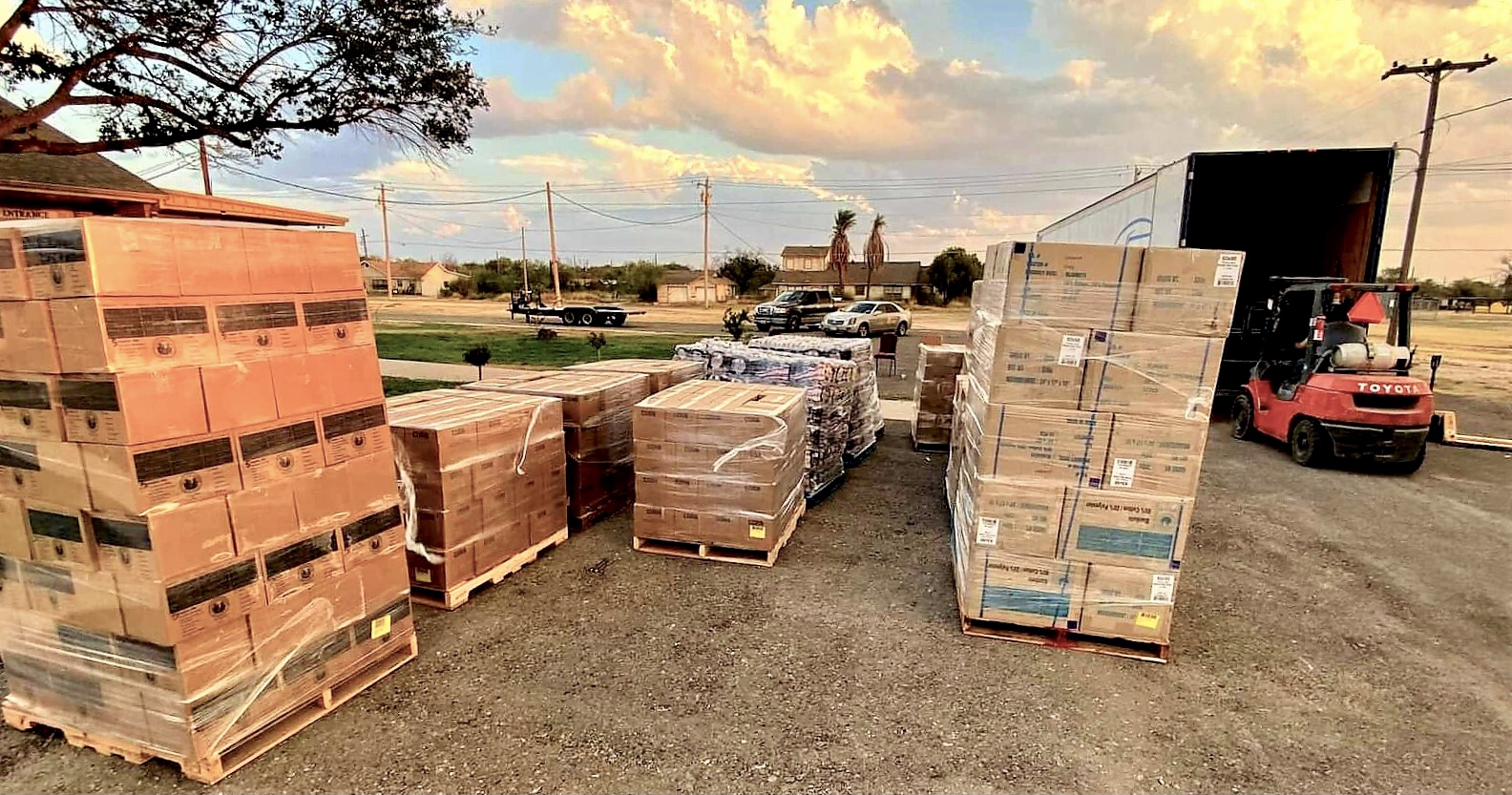By Giles Lambertson, Eagle Pass District Communications Director
Today’s southern border issues are primarily about people. Across the region, organizations are stepping up to cooperatively help hungry, unsheltered and scared border-crossers while policymakers sort out the rest of it. Two recent tractor-truck deliveries illustrate how church and humanitarian organizations are partnering to help the transient immigrant population and local residents in need of assistance.
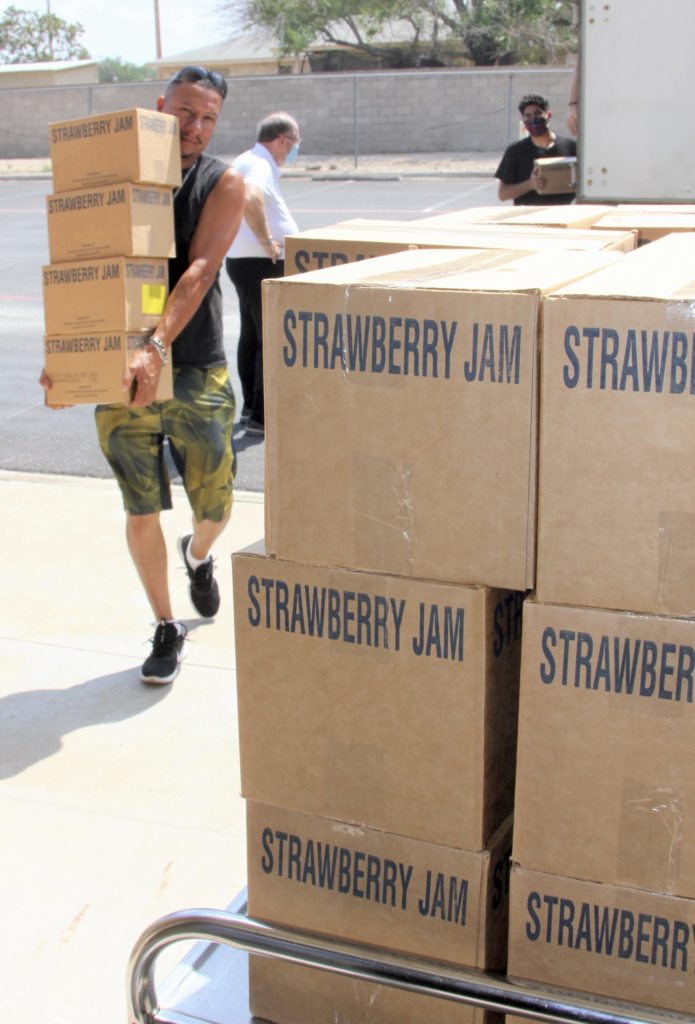
Last week, food, blankets, water, hygiene kits and other goods were transported some 1,200 miles from Salt Lake City, Utah, to four partners in Del Rio, Eagle Pass and Crystal City. The goods were contributed by the Church of Jesus Christ of Latter-day Saints in response to local appeals for assistance.
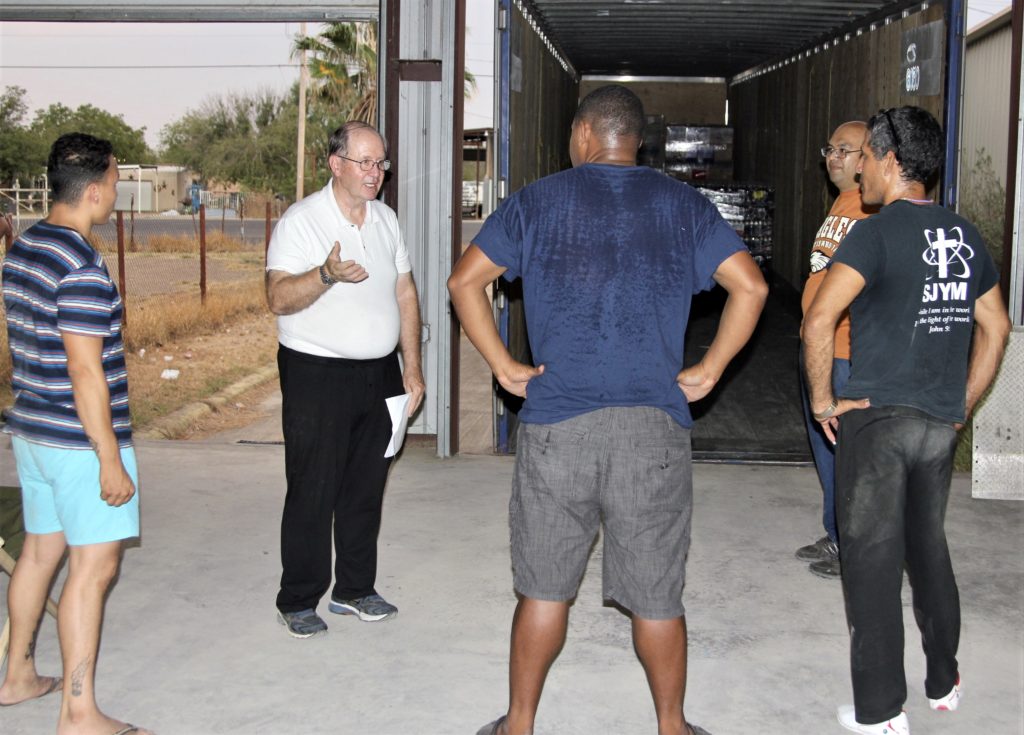
One of the receiving organizations, Mission Border Hope, is an Eagle Pass non-profit service organization closely affiliated with the Methodist Church. At its Bibb Street facility, the organization offers food, overnight shelter, hygiene kits and orientation to people crossing into Maverick County. In September, some 7,300 immigrants processed through the facility after being screened by the Border Patrol and ICE. The month before, 8,100 were assisted. Eleven pallets of diapers, wipes, bottled water, hygiene kits and cleaning supplies were unloaded at the organization’s warehouse.
Forty-five miles east in the Zavala County seat town of Crystal City, the Home of Living Faith Church oversees another distribution effort. Under the leadership of Pastors Eloy and Laura Vera, the church helps as many as 600 people each month in Crystal City, Batesville and LaPryor, Twice-monthly distributions of food, clothing and other supplies primarily target local residents needing help.
Thirteen pallets of canned fruits and vegetables, blankets, sanitary supplies and other items were unloaded at the Crystal City church and trundled into a storage area for timely distribution. “We exist to help the heart of our town and that is the people,” said Pastor Eloy Vera, who extended his “heartfelt thanks for this and future contributions to our church and pantry.”
In Del Rio, two pallets of bottled water were unloaded at the Val Verde Border Humanitarian Coalition facility on Las Vacas Street. This non-profit organization, like others, serves immigrating individuals and families after they have been screened by Border Patrol and ICE and before being sent on to sponsoring families or organizations to await judicial consideration of their asylum requests.
In July, some 1,700 people were helped at the Coalition’s facility. In August, the number more than doubled to 3,600. Among many organizations that support the coalition is a Del Rio congregation of the Church of Jesus Christ of Latter-day Saints. It regularly assembles peanut butter and jam sandwiches for immigrants to eat during their typically long trips to their sponsors.
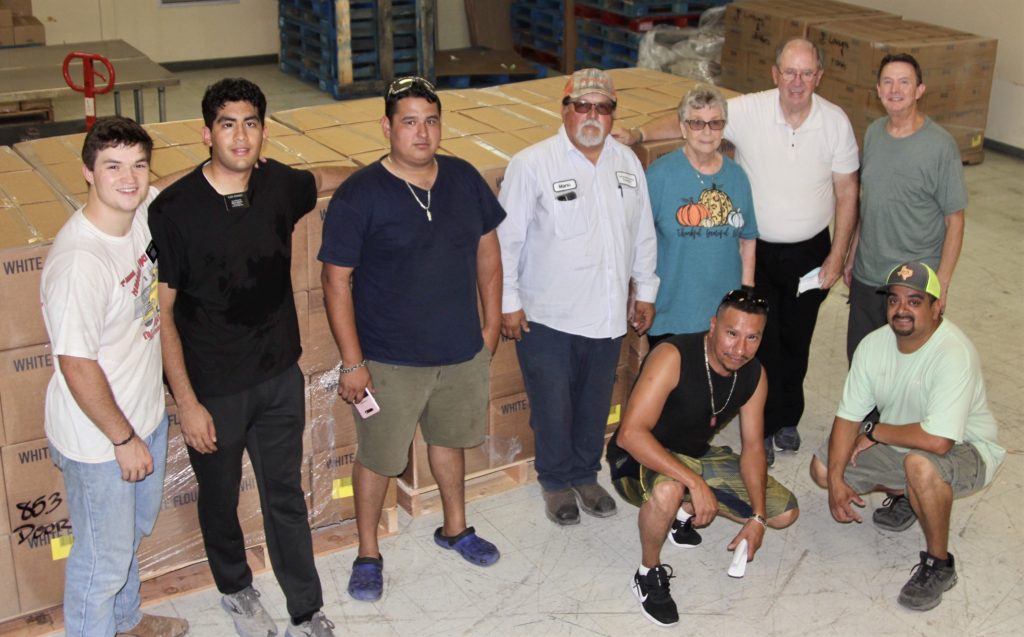
The fourth recipient of the donated goods was Del Rio’s Loaves & Fishes organization, which distributes bags of food three days a week to local residents in need of assistance. The same day the truckload of food from Salt Lake City arrived, the center received boxes of sandwiches left over from Del Rio City Church’s emergency feeding of Haitian immigrants under the city’s international bridge. Associate Pastor Shon Young and his wife Janeene repacked the sandwiches for placement in a cooler at Loaves & Fishes.
Operations Director Margie Carroll supervised the truck unloading at Loaves & Fishes, which received 19 pallets of such staples as bottled water, canned fruits and vegetables, rice and sanitary supplies. She was assisted by Mario Cervantes, a Val Verde County employee who moved the pallets to the building with a forklift.
A Loaves & Fishes volunteer with a pallet jack pulled the plastic-wrapped loaded pallets deeper into the warehouse. Elsewhere at the facility, four young people serving missions in a Del Rio congregation of the Church of Jesus Christ of Latter-day Saints muscled pallets in the truck trailer or stacked and sorted boxed food items.
“This has been a trying year for us all, with the Covid pandemic and the people crossing our Del Rio-Acuna border,” Carroll said. “With this donation, we’re able to help many, many more needy families in our community.”
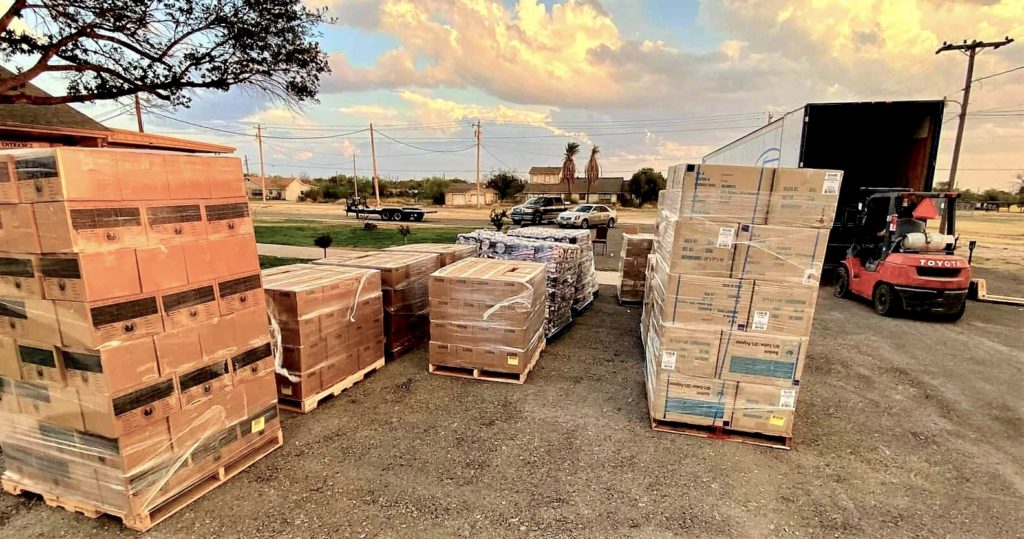
In all, 48 pallets of goods were distributed from the two trailer-trucks. Such deliveries are ongoing. Besides the four partners assisted this time, local officials in the Church of Jesus Christ of Latter-day Saints also have working relationships with seven other county agencies, nursing homes and child welfare centers in Del Rio, Uvalde, Carrizo Springs and Cotulla.
The partnerships were initiated by Ross Davidson, president of the church’s Eagle Pass District, which covers 10 counties in southwestern Texas. “None of these organizations were aware that our church was able to help support their missions until we reached out and offered the help,” he said.
Davidson works closely with Steve Stotts, who manages the Houston/San Antonio/South Texas region of the church’s welfare and self-reliance service organization. Stotts was on hand in Del Rio to help oversee unloading of the truck.
The Utah-headquartered church’s distribution of food through community partnerships—religious and otherwise—was summed up by Davidson this way: “The church has for many years assisted individuals, families and communities, teaching them how to build self-reliance and to recover from unforeseen emergencies. To leverage our resources, we partner with local churches, charities and agencies—coming together with like-minded people to show the Savior’s love and care through selfless service.”
